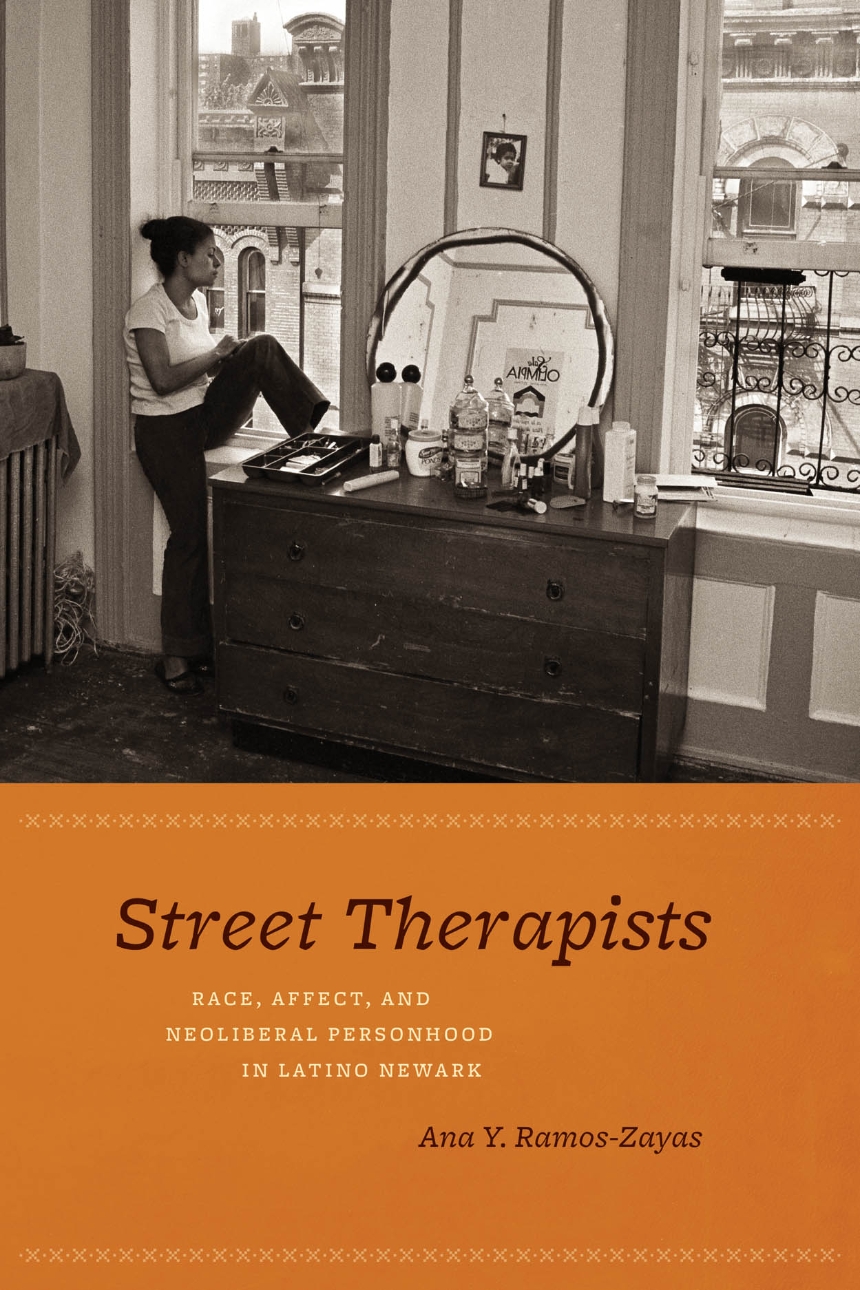Street Therapists
Race, Affect, and Neoliberal Personhood in Latino Newark
Street Therapists
Race, Affect, and Neoliberal Personhood in Latino Newark
Drawing from almost a decade of ethnographic research in largely Brazilian and Puerto Rican neighborhoods in Newark, New Jersey, Ana Y. Ramos-Zayas, in Street Therapists,examines how affect, emotion, and sentiment serve as waypoints for the navigation of interracial relationships among US-born Latinos, Latin American migrants, blacks, and white ethnics. Tackling a rarely studied dynamic approach to affect, Ramos-Zayas offers a thorough—and sometimes paradoxical—new articulation of race, space, and neoliberalism in US urban communities.
After looking at the historical, political, and economic contexts in which an intensified connection between affect and race has emerged in Newark, New Jersey, Street Therapists engages in detailed examinations of various community sites—including high schools, workplaces, beauty salons, and funeral homes, among others—and secondary sites in Belo Horizonte, Brazil and San Juan to uncover the ways US-born Latinos and Latin American migrants interpret and analyze everyday racial encounters through a language of psychology and emotions. As Ramos-Zayas notes, this emotive approach to race resurrects Latin American and Caribbean ideologies of “racial democracy” in an urban US context—and often leads to new psychological stereotypes and forms of social exclusion. Extensively researched and thoughtfully argued, Street Therapists theorizes the conflictive connection between race, affect, and urban neoliberalism.
464 pages | 6 x 9 | © 2012
Anthropology: Cultural and Social Anthropology
Sociology: Race, Ethnic, and Minority Relations
Reviews
Table of Contents
Acknowledgments
Preface
Introduction: Street Therapists: Race, Affect, and Neoliberal Personhood in Latino Newark
One The Feel That Sells Newark: From “Aggressive” City to Neoliberal-Friendly Emotional Regime
Two Delinquent Citizenship: Self-Help Organizations, Military Recruitment, and the Politics of Worth in Puerto Rican Newark
Three Cartography of Racial Democracy: Cultural Excess, Racial Play, and Universal Sentimentality in Luso-Brazilian Newark
Four Real-Life Telenovelas, Self-Care, and Stereotypes of the Tropics: Sexing Race and Emotion in the City
Five Of “Black Lesbians,” Hate Crimes, and Crime-Talk: The Sexuality of “Aggression” in the City
Six Learning Affect, Embodying Race: Cosmopolitan Competency and Urban Emotional Epistemologies
Final Remarks and Reflections
Notes
References
Index
